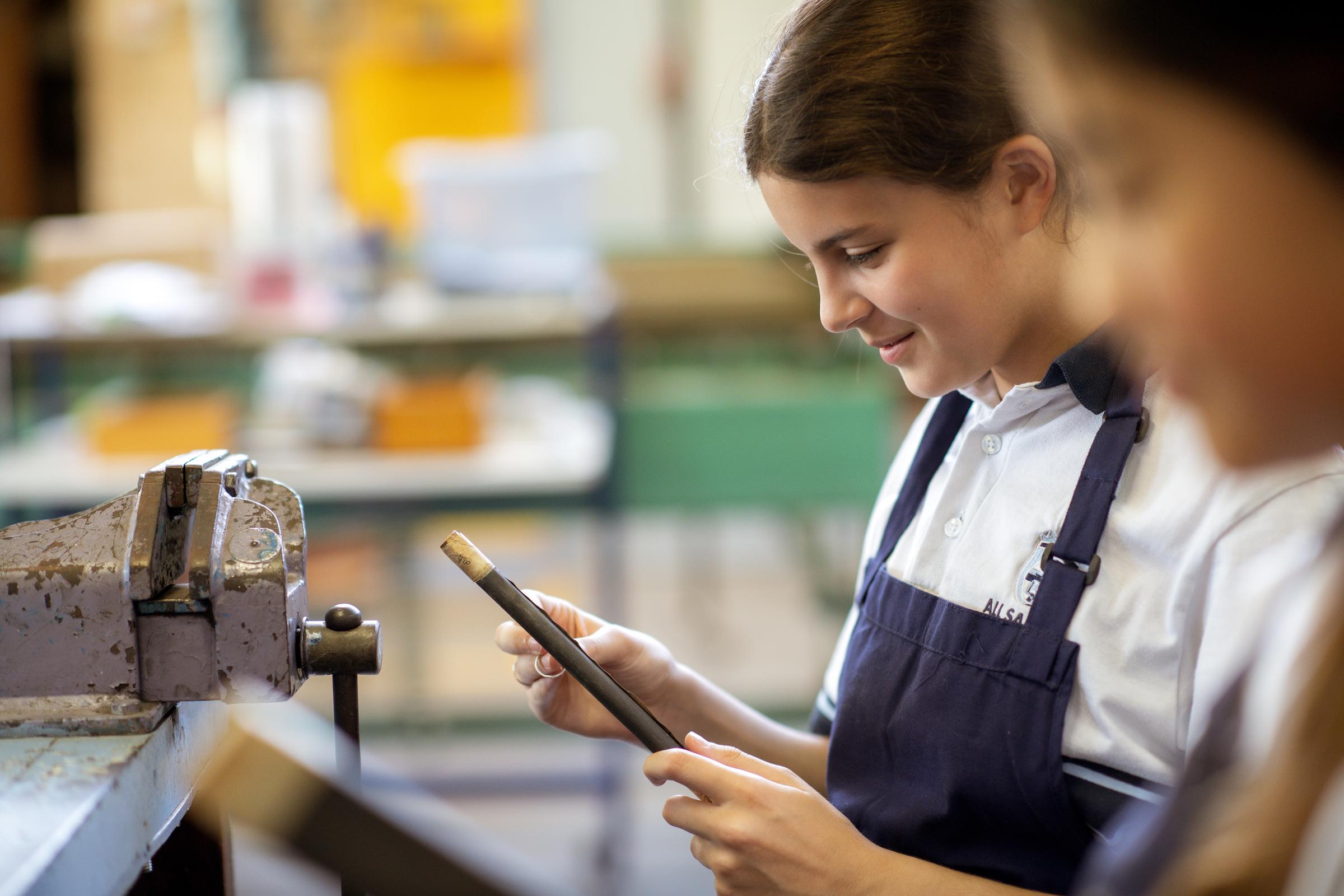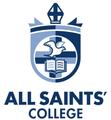DESIGN & TECHNOLOGIES LEARNING AREA

APPLIED INFORMATION TECHNOLOGY – GENERAL COURSE
The Applied Information Technology General course provides students with the knowledge and skills to use a range of computer hardware and software to create, manipulate and communicate information in an effective, responsible and informed manner. Students develop an understanding of computer systems; the management of data; and the use a variety of software applications to investigate, design, construct and evaluate digital products and digital solutions. The course offers pathways to further studies and a range of technology-based careers and a set of skills that equip students for the 21st century and give them an appreciation of the impact of information technology on society.
Year 11
Unit 1 – Personal communication
The focus of this unit is to enable students to use technology to meet personal needs. Students develop a range of skills that enable them to communicate using appropriate technologies and to gain knowledge that assists in communicating within a personal context.
Unit 2 – Working with others
The focus of this unit is to enable students to use a variety of technologies to investigate managing data, common software applications and wireless network components required to effectively operate within a small business environment. They examine the legal, ethical and social impacts of technology within society.
Year 12
Unit 3 – Media information and communication technologies
The emphasis of this unit is on the use of digital technologies to create and manipulate digital media. Students use a range of applications to create visual and audio communications. They examine trends in digital media transmissions and implications arising from the use of these technologies.
Unit 4 – Digital technologies in business
The emphasis of this unit is on the skills, principles and practices associated with various types of documents and communications. Students identify the components and configuration of networks to meet the needs of a business. Students design digital solutions for clients, being mindful of the various impacts of technologies within legal, ethical and social boundaries.
APPLIED INFORMATION TECHNOLOGY – ATAR COURSE
The Applied Information Technology ATAR course provides students with the knowledge and skills to use a range of computer hardware and software to create, manipulate and communicate information in an effective, responsible and informed manner. Students develop an understanding of computer systems; the management of data; and the use a variety of software applications to investigate, design, construct and evaluate digital products and digital solutions. Students investigate client-driven issues and challenges, devise solutions, produce models or prototypes and then evaluate and refine the developed digital product and solution. The course offers pathways to further studies and a range of technology-based careers, and a set of skills that equip students for the 21st century and give them an appreciation of the impact of information technology on society.
Year 11
Unit 1 – Media information and communication technologies
This unit focuses on the use of digital technologies to create and manipulate digital media. Students use a range of applications to create visual and audio communications. They examine trends in digital media transmissions and implications arising from the use of these technologies.
Unit 2 – Digital technologies in business
This unit focuses on the skills, principles and practices associated with various types of documents and communications. Students identify the components and configuration of networks to meet the needs of a business. They design digital solutions for clients, being mindful of the various impacts of technologies within legal, ethical and social boundaries.
Year 12
Unit 3 – Evolving digital technologies
This unit focuses on the use of applications to create, modify, manipulate, use and/or manage technologies. Students consider the nature and impact of technological change and the effect this has when creating products for a particular purpose and audience.
Unit 4 – Digital technologies within a global society
This unit focuses on the production of a digital solution for a particular client. Students undertake the management of data and develop an appreciation of the social, ethical and legal impacts of digital technologies within a global community.
Each unit includes:
a unit description – a short description of the focus of the unit
unit content – the content to be taught and learned.
COMPUTER SCIENCE – ATAR COURSE
In the Computer Science ATAR Course students explore the fundamental principles, concepts and skills within the field of computing. They learn how to diagnose and solve problems in the course of understanding the building blocks of computing. Students explore the principles related to the analysis and creation of computer and information systems; software development; the connectivity between computers; the management of data; the development of database systems; and the moral and ethical considerations for the development and use of computer systems. This course provides students with the practical and technical skills that equip them to function effectively in a world where these attributes are vital for employability and daily life in a technological society.
Year 11
Unit 1 – Design and development of programming and network solutions
In this unit, students gain knowledge and skills to create software solutions. They use algorithms and structured programming to design and implement software solutions for a range of problems. They consider the complex interactions between users, developers, the law, ethics and society when computer systems are used and developed. Students learn about network communications and the transfer of data through a network.
Unit 2 – Design and development of database solutions and cyber security considerations
In this unit, students learn about the design concepts and tools used to develop relational database systems. Students gain knowledge and skills to create database solutions and create queries to extract relevant information. Students consider the security of network communications, exploring a range of threats and measures used to keep networks secure. Students examine attitudes and values involved in the creation and use of computer-based systems and their effect on society. They examine the ethical and legal obligations of the user and developer in the collection and storage of data.
Year 12
Unit 3 – Design and development of programming and networking solutions
In this unit, students gain knowledge and skills to create software solutions. They use algorithms, structured programming and object-oriented techniques to design and implement software solutions for a range of problems. They consider the complex interactions between users, developers, the law, ethics and society when computer systems are used and developed. Students learn about network communications and the transfer of data through a network.
Unit 4 – Design and development of database solutions and cyber security considerations
In this unit, students learn about the design concepts and tools used to develop relational database systems. Students gain knowledge and skills to create database solutions and create queries to extract relevant information. Students consider the security of network communications, exploring a range of threats and measures used to keep networks secure. Students examine attitudes and values involved in the creation and use of computer-based systems, and their effect on society. They examine the ethical and legal obligations of the user and developer in the collection and storage of data.
DESIGN – GENERAL
In the Design General course students develop skills and processes for current and future industry and employment markets. Students are equipped with the knowledge and skills to understand design principles and processes, analyse problems and devise innovative strategies through projects. Students are able to focus on particular contexts from a choice of photography, graphics, dimensional design and technical graphics. The Design General course also emphasises the scope of design in trade based industries allowing students to maximise vocational pathways.
YEAR 11
Unit 1 – Design fundamentals
The focus of this unit is to introduce design process and practice. Students learn that design can be used to provide solutions to design problems and communication needs.
Unit 2 – Personal design
The focus of this unit is personal design. Students learn that they visually communicate aspects of their personality, values and beliefs through their affiliations and their manipulation of personal surroundings and environments.
YEAR 12
Unit 3 – Product design
The focus for this unit is product design. Students learn that the commercial world is comprised of companies, requiring consumer products, services and brands for a particular audience.
Unit 4 – Cultural design
The focus for this unit is cultural design. Students learn that society is made up of different groups of people who share diverse values, attitudes, beliefs, behaviours and needs; and that different forms of visual communication transmit these values and beliefs.
DESIGN – ATAR COURSE
In the Design ATAR course students develop skills and processes for current and future industry and employment markets. Students are equipped with the knowledge and skills to understand design principles and processes, analyse problems and possibilities, and devise innovative strategies within design contexts. These include photography, graphics, dimensional design and technical graphics. The Design ATAR course also emphasises the scope of design in professional industries allowing students to maximise university pathways.
Year 11
Unit 1 – Representational design
In this unit, students begin to experiment with various techniques for representation, such as sketching, drawing, photographing and prototyping, to communicate design ideas and Design Thinking. They are introduced to an iterative design process to create possible design outcomes.
Unit 2 – User-centred design
In this unit, students increase their understanding of design methodologies through the introduction to an iterative design process. They prototype and modify designs to test the impact on audiences and address practical outcomes for users.
Year 12
Unit 3 – Responsible design
In this unit, students become aware of the legal, ethical and environmental responsibilities of a designer as they focus on the development of useful, sustainable and/or ethical design forms.
Unit 4 – Influential design
In this unit, students learn how the communication of ideals, messages, information and values can influence opinion and attitudes.
ENGINEERING STUDIES – GENERAL
The Engineering Studies General course is essentially a practical course focusing on real-life contexts. It aims to prepare students for a future in an increasingly technological world, by providing the foundation for life-long learning about engineering. It is particularly suited to those students who are interested in engineering and technical industries as future careers.
YEAR 11
Unit 1
In this unit, students develop an understanding of the engineering design process. They study and interpret a given design brief, learn a range of research skills and devising methods to develop concepts, then plan and communicate proposed solutions to the given design brief. They study core engineering theory and relevant theory of their chosen specialist area, and learn to integrate and use this knowledge to develop and present proposals for practical solutions.
Students calculate requirements, prepare drawings and produce lists of materials and components and then follow a given timeline to produce, test and evaluate the finished product.
Unit 2
In this unit, students focus on the topics of automation and technical innovation. They investigate engineering examples within these themes and the impact these technologies have on society. Students study and interpret a given design brief. They develop responses to the brief through a process that requires them to engage in a range of activities including: researching similar existing engineered products; sketching, drawing and annotating concepts; and choosing the preferred concept for production as a prototype or working model. Students finalise their chosen design by documenting its specifications in the form of appropriate drawings and lists of materials and components. They follow a given timeline to undertake tasks required to produce, test, and evaluate the product. Core and specialist area theory continues to be studied to forge greater understanding of the scientific, mathematical and technical concepts that explain how engineered products function.
FOOD CERT II IN HOSPITALITY
YEAR 11 / YEAR 12
This qualification provides a pathway to work in various hospitality settings, such as restaurants, hotels, motels, catering operations, clubs, pubs, cafes and coffee shops. Job roles involve mainly routine and repetitive tasks using practical skills and basic industry knowledge, working under direct supervision.
